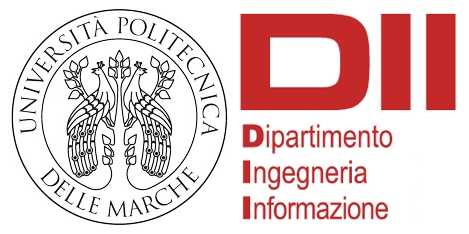Project details
Title:
Efficient and Reliable Communication Networks
Acronym:
ECONET
Type:
National
Start Date:
July 1, 2024
End Date:
September 30, 2025
Principal Investigator:
Tenure Track Researcher, Massimo Battaglioni
Other Units Involved:
UNITS, UNIVAQ, Tekne SPA
Keywords:
Channel coding, Green Networks, Reliability
Description:
The ECONET project addresses one of the key challenges of next-generation communication networks: ensuring reliability, energy efficiency, and low latency in increasingly complex and heterogeneous environments. The evolution of wireless technologies, particularly towards 6G, demands advanced channel coding solutions to meet stringent requirements for Ultra-Reliable Low-Latency Communications (URLLC), massive Machine Type Communications (mMTC), and converged services.
ECONET proposes innovative coding and decoding strategies that optimize performance across different network layers, supporting efficient transmission of short data packets, multi-user communication, and joint PHY-MAC optimization. The project covers both theoretical research and practical software development, leveraging the expertise of four partners: Università Politecnica delle Marche, Università degli Studi di Trieste, Università degli Studi dell’Aquila, and Tekne SpA.
The project includes designing graph-based codes (block and spatially coupled LDPC), developing energy-efficient channel coding schemes, exploring coding-PHY interactions, and system-wide optimization for green communications. These innovations will support the sustainable evolution of future networks while reducing their energy footprint.
ECONET combines academic research expertise with industrial pragmatism to create significant advancements in wireless communications, aiming to influence future standards and contribute to a more connected and sustainable society.
Objectives:
The objectives of ECONET include:
– Designing and optimizing advanced channel coding techniques (block and SC-LDPC) tailored for URLLC+ services to ensure high reliability and low latency.
– Developing new families of adaptable channel codes that support the convergence of services in 6G networks, with particular attention to short-packet transmissions and multi-user scenarios.
– Creating channel coding schemes with reduced energy consumption to support green network principles and minimize environmental impact.
– Investigating and optimizing interactions between coding schemes and PHY layer design, including NOMA approaches.
– Proposing joint design methodologies for system-wide energy efficiency.
– Supporting the development of software demonstrators and simulation tools that validate the proposed techniques and facilitate their adoption in industrial contexts.
Achieved Results:
During the first semester of the project, the latter advanced significantly across key areas. Extensive work was conducted on sliding window decoders for SC-LDPC codes, including defining latency metrics, optimizing decoding schedules, analyzing error propagation, and developing efficient generator matrices for both time-invariant and periodically time-varying codes. A family of rate-compatible block LDPC codes with low encoding complexity was designed and analyzed. AI-based decoding research progressed, supported by an indoor wireless model for C2C communications under realistic channel conditions. Blind source separation algorithms were developed for massive MTC networks with slotted ALOHA, enabling payload extraction via antenna diversity without relying on power or code differences, and integrated with Code Random Access techniques. Analytical tools for LDPC code design were advanced through EXIT chart-based methods, including precise approximations and bounds for the Q-function to improve convergence analysis. In parallel, a framework was developed to analyze coding-PHY interactions, with RIS-assisted link modeling and new EM characterizations for thin-wire dipoles. Cooperative SIC techniques and RIS-based beam-splitting optimizations were devised to enhance performance in macro-diversity NOMA systems. Additionally, a system-wide framework for modeling energy dynamics was initiated, integrating advanced contention schemes and exploring passive communication methods. The SDR platform was configured and antenna arrays tested with on-site calibration procedures in anechoic chamber. The SDR software architecture for multichannel signal generation was designed and partially implemented.
Dissemination activities included several conference papers, journal papers in preparation, and multiple technical presentations.
Publications:
– M. Baldi, M. Battaglioni, F. Chiaraluce, A.-L. Horlemann, E. Persichetti, P. Santini, and V. Weger, “A new path to code-based signatures via identification schemes with restricted errors,” Advances in Mathematics of Communications, vol. 19, pp. 1360–1381, Oct. 2025.
– R. Giuliani, M. Battaglioni, M. Baldi, F. Chiaraluce, and N. Maturo, “Telecommand Rejection Probability in CCSDS-Compliant LDPC-Coded Space Transmissions With Tail Sequence,” IEEE Access, vol. 13, pp. 8924–8940, Jan. 2025.
– M. Battaglioni, M. Baldi, F. Chiaraluce, and G. Cancellieri, “Rate-compatible LDPC Codes based on Primitive Polynomials and Golomb Rulers,” IEEE Transactions on Communications, vol. 72, pp. 7361–7373, Dec. 2024.
– M. Battaglioni, R. Giuliani, F. Chiaraluce, and M. Baldi, “Machine Learning-Based Tail Sequence Detection in LDPC-Coded Space Transmissions,” in Proceedings of IEEE Wireless Communications and Networking Conference (WCNC) 2025, Mar. 2025.
– M. Battaglioni, G. Greganti, and G. Cancellieri, “Optimized rate-adaptive error correction through puncturing and shortening of simplex codes,” in Proc. of 2024 AEIT International Annual Conference (AEIT), Sept. 2024.
